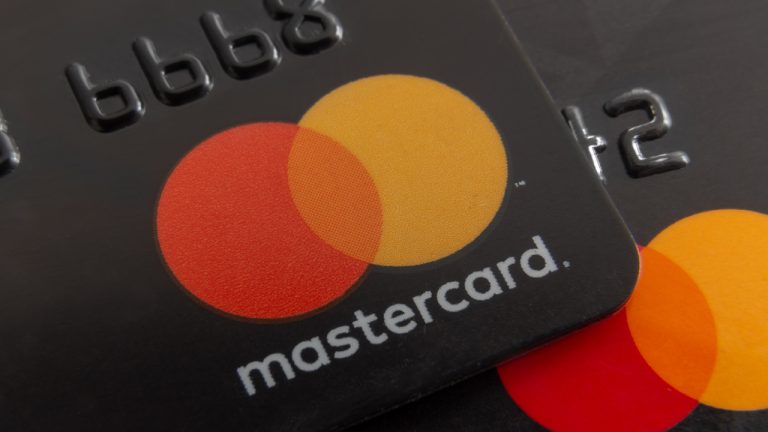
Crypto natives and newbies alike came together to build community and share alpha on the latest in music technology and decentralization.
Web3 has become one of the hottest buzzwords in the music industry, with everyone from independent musicians to major label artists dropping nonfungible token (NFT) collections and throwing concerts in the metaverse. But for many, the actual use cases and potential of these technologies remain shrouded in mystery and confusion.
On May 6, Water & Music held its inaugural Wavelengths Summit, a one-day event bringing together musicians, industry executives, artist managers, researchers and technologists to explore the bleeding edge of music technology and democratize access to information. On the agenda were talks about blockchain-based communities, the growing influence of artificial intelligence on the music industry and the future of artist revenue streams.
Water & Music is a collaborative music technology research network founded in 2016 by writer Cherie Hu as a free newsletter. It has since evolved to encompass a paid membership structure, an extensive online collaboration network and in-person events. Its research often touches upon Web3 and how blockchain impacts the music industry.
“I think the music industry, in particular, has suffered from information silos,” Hu told Cointelegraph. “If you’re trying to figure out how fans interact with your music in a holistic way, it’s actually a huge challenge.” Enter Water & Music, which seeks to empower its community with the knowledge needed to thrive in the digital era.
Community
A central focus of both Water & Music as an organization and its Wavelengths Summit was building a sense of community. The event’s emphasis on the importance of community-building in music and Web3 was ever-present, from the topics chosen for discussion — including sessions titled “Music Community Building and Decentralization: Lessons from History” and “URL to IRL: Uniting Music Communities Online and Offline” — to the way the event itself was hosted and organized.
For instance, Hu opened the summit by laying out four ground rules for positive community-building: “Be kind and respectful,” “Stay critical, “No shilling,” and “Have fun!” She also announced that there would be no panels; instead, experts would facilitate conversations, with audience members encouraged to jump in at any point. Talks on the main stage were accompanied by a large screen displaying live comments and questions from audience members via an app called Slido.
~crowdsourcing~ data — so fascinating to see the wide range of how people define fandom #Wavelengths2023 @water_and_music pic.twitter.com/VUUqHspAn7
— cherie hu (@cheriehu42) May 6, 2023
“I think what we were really aiming for is recreating the magic of our Water & Music Discord,” Diana Gremore, Water & Music’s events director, told Cointelegraph. “We have such a thoughtful, articulate, critical, passionate, curious community, so we wanted to do our best to facilitate how that URL community translates into an IRL experience.”
Web3 community building for musicians
Throughout the day, many of the conversations touched on how Web3 and blockchain technologies are being explored in the world of music. During the “Music Community Building and Decentralization” session, participants discussed how online communities such as decentralized autonomous organizations (DAOs) are the next step in a long history of decentralization.
As pointed out by Austin Robey, co-founder of Metalabel — which is building a blockchain-based platform for collaborative artist releases — on-chain voting and governance are digital versions of what real-world communities have always done. Social spaces are always governed, and communities are always decision-making. And while DAOs may be subject to “code,” real-world communities have always been subject to social “codes.”
“Music Community Building and Decentralization: Lessons from History”#Wavelengths2023 has no panels, just discussions. Anyone can join the conversation at anytime. The focus of this collab conversation: What can #Web3 music communities learn from traditional music communities? pic.twitter.com/FFpw4N3Vtf
— a Jonathan named MADic (@maddopemadic) May 6, 2023
The discussion was moderated by Kaitlyn Davies, membership lead at Friends With Benefits — a social DAO for creatives — and head of curatorial partnerships at Refraction — a DAO for artists and creators with a particular focus on live music events. Davies told Cointelegraph that the preexisting decentralization in music communities helps explain why so many in the music world gravitate toward Web3.
“You see a lot of people who have always been interested in decentralized ways of organizing or sort of left-of-center means of organizing look to this technology to keep doing their work — not even to get bigger or to cast a further net but just to enable what they were already doing,” she said, adding:
“Cultivating a scene or a community, that’s really important, and that’s what drives culture. [...] My hope still is that decentralized tech helps us do that better and helps us do that in more equitable ways.”
During the “Web3: Balancing Niche and Mainstream on the Road to Adoption” session, participants discussed the importance of first understanding one’s community before launching crypto music projects. Melanie McClain, a Web3 consultant and founder of Blurred Lines — a community of Web3 tastemakers supporting left-of-center Black music — said that if fans want free shows, artists can experiment with NFTs that give collectors free access to concerts. And if the artist blows up, that free-performance NFT will suddenly become much more valuable.
Related: Music NFTs are helping independent creators monetize and build a fanbase
Speaking to Cointelegraph, McClain said that crypto-native and crypto-newbie artists alike could use blockchain tech to build stronger communities, but each approach must be tailored. “They have to be self-aware,” she said. If a musician’s community is not native to Web3, “they might not say words like NFTs or social tokens. They can lead the conversation in other ways while still using the tools in the back end.”
Many facilitators and other attendees expressed that Web3 solutions offer particularly unique advantages for musicians, with Gremore telling Cointelegraph that “one of the biggest strengths of [Web3] is the ability to build community and sustain community.”
Perhaps part of the reason for this is that blockchains are generally designed for efficiency. According to Hu, this allows artists and their teams to better utilize “smart money” — when a musician doesn’t have much money to spend and therefore must use their funds as efficiently as possible.
The larger the pile of money the dumber it is
— Venkatesh Rao ☀️ (@vgr) November 9, 2022
If you have only $10 it is probably really smart money because you’re going to think hard and object level about spending it
If you have $10B, it’s being deployed mostly in > $250m chunks via org charts with 7 levels of bs theories
“In music and Web3, I’m noticing instead of just random artists dropping NFT projects that happen to gain a lot of money, there’s more focus on ‘what’s the actual use case?’” Hu told Cointelegraph. “What is blockchain actually adding to music in a way that makes things easier and not harder from a technical standpoint?”
URL meets IRL
One thing that stood out at the Wavelengths Summit was how many online friends were meeting IRL — in real life — for the first time. Having many internet friends is not unique to crypto, but it is particularly pronounced in the space, given its inherently decentralized nature. For most people, meeting an online friend in person is special, and the summit was designed to facilitate those connections.
The internet allows for a level of community building previously impossible, especially between musicians and their fans. But as Gremore told Cointelegraph, “There’s a magic in IRL that just can’t be replaced.” She added, “URL is where so many of the conversations start happening, and then IRL — it’s a chance to deepen those bonds.”

For Hu, building in-person relationships is critical for the long-term success of Web3 communities. “IRL events make or break trust in a community,” she said. When internet-based communities meet in person, that community’s carefully curated online image disappears, and people see it for what it really is — whether good or bad.
“Events are so important for online communities because if the name of the game is long-term sustainability, that will make or break trust. If it succeeds, it could be a huge kickstarter to a whole new stage or a whole new level for the community or for the brand. But I’ve definitely seen it go the other way around also.”
For those unable to participate in IRL experiences, online ones still offer opportunities, such as allowing fans to connect virtually with their favorite music artists. “I think using virtual things, not necessarily the metaverse but using live-streaming platforms, things like that — I think you can simulate the same thing,” McClain said. “Everybody can participate no matter where they are.”
“I think online spaces are safe havens for a lot of people, and I think that that should never be discounted,” believes Davies. “But I think the power of meeting somebody in person and being like, oh, you’re like a real human being, and we have similar thoughts about this, and maybe a block on a chain helped us find each other — but really what it’s about is us hanging out in person.”
Magazine: AI Eye: ‘Biggest ever’ leap in AI, cool new tools, AIs are the real DAOs
Ultimately, the main takeaway of the Wavelengths Summit was that community-building is a critical component for success in both music and Web3, and Water & Music intentionally designed its inaugural summit to set an example of how it believes community-building should look.
To close out the day, Gremore shared with the audience that Water & Music wanted attendees to leave empowered — that even though it may seem like the music industry is broken, there is still light at the end of the tunnel. And as the summit revealed, some of that hope may come in the form of DAOs, NFTs or other blockchain-based tools that help artists build community directly with their fans. Or, as Gremore told the audience:
“We’re fucked — but maybe we can do something about it.”












